Cannot wear contact lenses? See the resones

Are there actually people that cannot wear contact lenses? Turns out there are! While a few people might be extremely excited to use contact lenses for different reasons, these folks are more or less the contact lens intolerance kind- if that makes sense.
But it’s not everyone. So, don’t freak out just yet. This article will help you determine if you are one of the selected few who cannot wear contact lenses. Or maybe you can, but with a little bit more help – this is where we’ll find out.
What happens when you wear contacts?

Most people think your eyes feel like they’ve been covered by a blanket when they wear contacts. Well… not really. There is a whole other world of science and medical understanding that happens around the eyes after wearing contact lenses. So what are those things? Here are two (2) that might blow your mind:
Lighting Changes
Even if you don’t have a medical contact lens on, the level of light that penetrates into your eye differs on a certain level. That’s why if you suffer from photo-related eye conditions, you would be asked to take a contact lens exam to determine which lens material would be best for your needs. It is all because the lens alters the direction of light that’s coming into your eye and then refocuses it onto your retina. So whether it is a cosmetic lens or a prescription, it still does some work.
Oxygen Blockage
Aside from the positive benefit of lighting improvement, contact lenses stop oxygen from entering your eye. Though soft lenses might not block out as much oxygen as rigid gas-permeable lenses.
Still, your eye will suffer from oxygen deficit; which is a bad thing. Some of the things that reduced oxygen to the eye can cause include hazy vision, increased risk of astigmatism, dry eye symptoms, redness of the eye, and so on.
Though there are other things that could happen when you wear contact lenses, the fact that it blocks out oxygen will lead us right into the next heading.
Who are the people that cannot wear contact lenses?

Note that this will be a very long list. While some of you that will fall into these categories written below might prefer contact lenses, it is better for you to keep away from them if you want clear vision. So without any further ado, here are the groups of people that cannot and should not wear contact lenses.
Those who have repeated eye infections.
People with repeated eye infections suffer contact lens intolerance. Not only do the contacts foster a higher risk of more eye infections, but it also does not aid in the promotion of better vision correction.
Some eye infections that you might want to look out for include unexplained eye discomfort or pain, redness of the eye, watering eyes, or even vision change.
Unfortunately, wearing contacts will only put you at risk of even more infections that could lead to further eye damage.
Those with dry eye syndrome.

Dry eye syndrome is the condition of being more susceptible to having dry eyes. The syndrome can also be known as keratoconjunctivitis sicca and it is simply a case of overly predominant dry eye disease in a person.
Some of the symptoms you would be experiencing include irritation in the eye, some itchiness, redness, discharge, tiredness of the eye (which can also be translated to fatigue), and even blurred vision.
The best way to deal with dry eye disease is to visit the eye doctor for tests, and a special prescription. You could also be given some special lenses that are particular to your eye, but that is only after you must have contacted and visited an eye doctor.
People with severe astigmatism
Astigmatism is a common vision condition due to improper curvature of the cornea, the lens, or the retina. This results in blurred vision at any distance. It can also cause eyestrain, headaches, and trouble driving at night.
If you have symptoms of astigmatism, you should see an eye doctor for a comprehensive eye exam and diagnosis.
Wearing contacts increase the refractive error that already causes the condition. So if you are aiming towards vision correction, it’s best to stay away from contact lenses – at least for the time being.
People with severe cases of allergy or lens intolerance

This is an actual condition. A few people have sensitive eyes cannot use contact lenses. They’d have to stick to glasses if they have an eye condition that needs taking care of. Only eye care professionals can properly handle these cases and that’s why it is important to go to an eye doctor before getting a contact lens.
While many doctors might skip the first step, and only test for if you have a condition, professionals will check to see how sensitive your eyes are before giving you a prescription.
The Wrong Contact Lens
At the end of the day, some people might just be wearing the wrong contact lens. While a sensitive eye might suffer some very uncomfortable conditions after wearing contact lenses, others could be facing the same issue by wearing the wrong lens.
For example, if you are wearing daily wear lenses for a week, then you have signed up for an eye infection. In the same way, if you are wearing a rigid gas-permeable lens when you are supposed to be on soft lenses, you have signed up for the discomfort.
It all boils down to being your eye doctor. Make sure you seek guidance before you use any type of lens or glasses.
Check our offer:
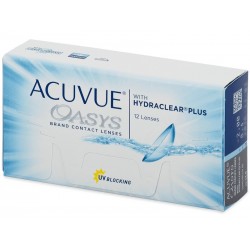
Acuvue Oasys 12 contact lenses
Order ACUVUE OASYS 12 contact lenses without a prescription verification
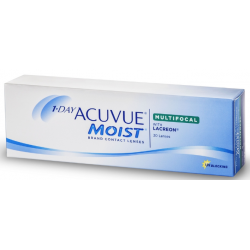
1-DAY ACUVUE® MOIST MULTIFOCAL
Order 1-DAY ACUVUE® MOIST MULTIFOCAL without prescription 1-DAY ACUVUE® MOIST MULTIFOCAL contact lens is a new one-day cont...
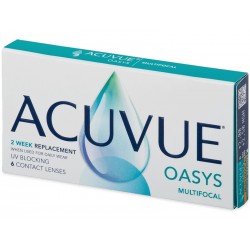
Acuvue Oasys Multifocal 6 pack contact lenses
Struggling with presbyopia, making reading difficult? Our two-week ACUVUE® OASYS MULTIFOCAL contact lenses are designed for ...
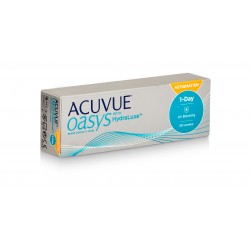
ACUVUE® OASYS 1-DAY for ASTIGMATISM 30 contact lenses
ACUVUE® OASYS 1-Day for ASTIGMATISM are advanced, one-day use contact lenses designed for those with astigmatism. They ensur...
Conclusion
Note that whether or not you are allowed to wear contact lenses, you must follow some basic rules. Always seek the direction of an optometrist before using any lens, and always take care of your contact lenses. Most importantly, do not force yourself to go through an uncomfortable moment. Immediately you feel discomfort, remove the lens, and wear glasses.
See also:




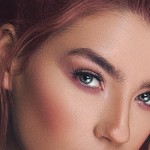


Leave a comment
You must be logged in to post a comment.